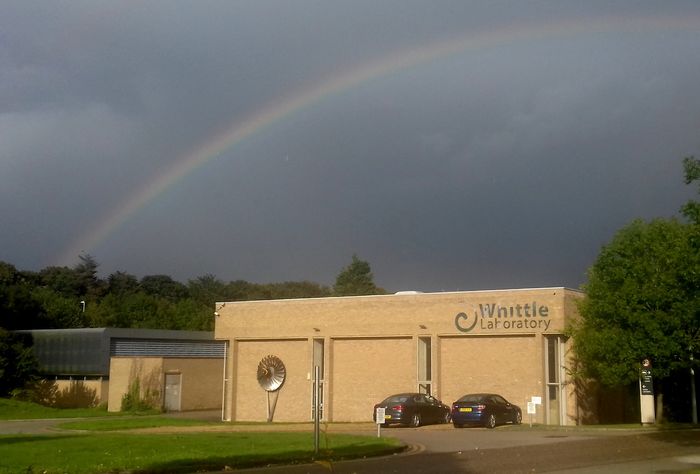‘Net zero’: what it means and why it’s not enough
Grace Blackshaw explores whether the pledges to improve made by some of the very companies which helped create the climate crisis are anything more than empty promises

As with many corporate catchphrases, BP’s recent ambition to ‘reimagine energy for people and planet’, should be digested with a liberal dash of cynicism. Indeed, new CEO, Bernard Looney’s statement a few weeks ago was full of catch phrases: ‘there is no turning back’, ‘reimagining energy as we know it’ and ‘a net zero company by 2050’. These sound great in press releases, but what do they mean in practice?
For one thing, ‘net zero’ or carbon neutral does not mean no carbon dioxide is released. Carbon neutrality refers to the practice by which countries, companies and individuals compensate for their carbon dioxide emissions by funding carbon saving projects elsewhere.
To many, carbon offsetting is essentially synonymous with tree planting. In reality, there are many different types of carbon offsetting projects, including: renewable energy, energy efficiency, carbon capture and storage, methane capture, waste management and indeed forestry.
In the case of forestry, more trees seem like a great idea. Last year, a study from Thomas Crowther, at the University of Zurich, estimated that 1.2 trillion more trees could cancel out a decade of CO2 emissions. However, before we all get out our shovels, there are a couple of limitations. These calculations are based on 1.2 trillion mature trees. It would take any new saplings many years to reach this level of carbon sequestration. And that is assuming they ever do. Newly planted forests are vulnerable to changes in environmental conditions, soil degradation and extreme weather events.
Furthermore, investing in renewable energy should be about more than just compensating for our continued use of fossil fuels. Solar panels and wind farms should be about replacing these fossil fuels, not allowing the industry to continue.
Mike Berner-Lee explained this well at the first instalment of the Cambridge Climate Lecture Series, where he clearly presented the need to expand the renewable energy sector. Crucially, he highlighted that ‘If we were to do that while still growing our energy supply at 2.4% per year, it would have done us no good whatsoever because we would just be having the renewables as well as the fossil fuels and we need to have the renewables instead of the fossil fuels.’
On an individual scale, we are also seeing a rise in carbon offsetting being used to compensate for flying. Here, carbon offsetting is used primarily as a means for the relatively well-off to assuage their guilt over their impact on the climate crisis. Is it right that the luxury of a guilt-free conscience is a commodity to be bought?
In any case, carbon offsetting is unlikely to be the green bullet many would have us believe.
Returning to BP, there is also the small matter of deadlines. BP’s timescales were disappointingly (but perhaps unsurprisingly) vague. Looney promises BP will ‘invest more in low-carbon businesses – and less in oil and gas – over time’. Given that, according to the IPCC, we have just 11 years to keep global warming to below 1.5°C and thereby avoid catastrophic consequences, the phrase ‘over time’ could be a bit more specific. Worryingly, this flexible approach to deadlines is a fairly common strategy among companies and countries looking to improve their green credentials, with little to no impact on either their profits or their GDP.
BP’s track record on the climate crisis also gives us no choice but to question whether this is the start of a genuine effort to ‘reinvent’ themselves or simply their latest attempt to paint themselves as the good guys.
Just last year, BP came under fire from environmental lawyers for their ‘potentially misleading’ advertising campaign. Adverts claimed that BP was ‘working to make energy cleaner’, while in reality, more than 96% of BP’s capital expenditure remained on oil and gas. Further back in 2000, BP introduced the slogan ‘Beyond Petroleum’, with big claims regarding its investment in ‘alternative energies’. And yet, here we are in 2020, with BP’s business model still very much reliant on petroleum and other fossil fuels.
They are certainly not alone in their ‘net zero’ aspirations. In the two weeks following BP’s announcement Delta Airlines, Burberry, FIFA and Heathrow Airport have also all pledged some form of carbon neutrality.
Indeed, the business of helping companies achieve their carbon neutral status is itself a growing industry. One example is the CarbonNeutral Protocol, whose clients include Sky, Microsoft and Logitech. Their website proudly proclaims the benefits of companies going carbon neutral: ‘increase revenue’, ‘reduce cost’, ‘engage stakeholders’ and ‘reduce the risk of possible future regulation that taxes carbon consumption’. Note the focus is very much on protecting profits, rather than protecting the planet.
In many ways, this is one of the central conflicts in current efforts to tackle the climate crisis: profit vs planet. If we are to have any chance of dramatically reducing our carbon emissions in real terms, we need to drastically rethink the energy sector. This will require much more than empty promises. We need action and we need it now. But can we really rely on the same powerful companies that got us into this mess to get us out of it?
 News / Eight Cambridge researchers awarded €17m in ERC research grants27 December 2025
News / Eight Cambridge researchers awarded €17m in ERC research grants27 December 2025 News / Clare Hall spent over £500k opposing busway 24 December 2025
News / Clare Hall spent over £500k opposing busway 24 December 2025 Comment / League tables do more harm than good26 December 2025
Comment / League tables do more harm than good26 December 2025 Comment / The ‘class’ of Cambridge24 December 2025
Comment / The ‘class’ of Cambridge24 December 2025 News / Caius mourns its tree-mendous loss23 December 2025
News / Caius mourns its tree-mendous loss23 December 2025









